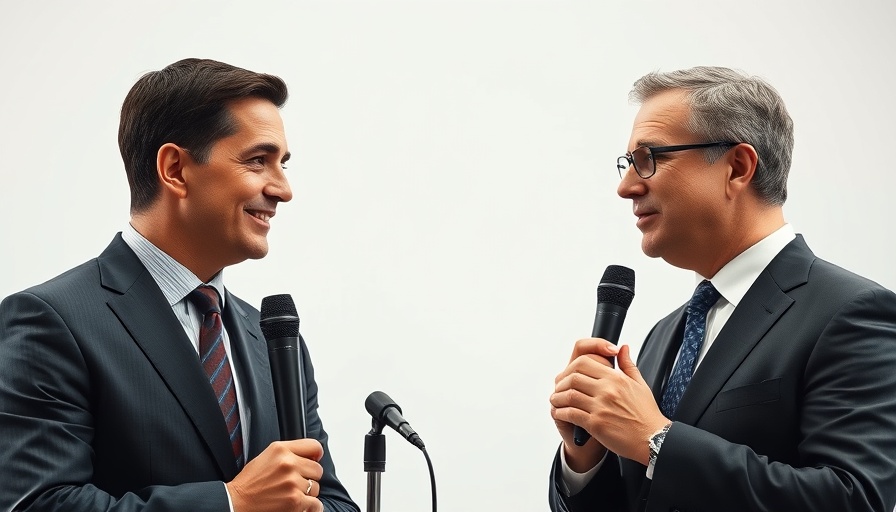
The Rise of Digital Media in Informing Africa
As Africa continues to advance in technology and connectivity, the importance of digital media in disseminating news cannot be overstated. The proliferation of smartphones and internet access has revolutionized how information flows across the continent, allowing for real-time reporting and engagement with audiences that was previously unimaginable. This democratization of information plays a crucial role in empowering citizens to hold their leaders accountable and stay informed about pressing issues.
The video titled 🔴LIVE: News Central TV Live | delves into the importance of digital media in Africa's political landscape, thus inspiring a deeper examination of the subject in this article.
Understanding Political Dyamics: Spotlight on Scandals
The video titled 🔴LIVE: News Central TV Live | sheds light on the recurrent political scandals engulfing various governments across Africa. Political integrity is continuously challenged as leaders are often embroiled in controversies that tarnish public trust. The discussions surrounding these issues serve as a reminder of the critical need for citizens to be vigilant and informed.
Scandals such as corruption in governmental institutions and mishandling of public funds frequently surface, impacting citizens' lives and welfare. Through investigative reporting, new revelations emerge that expose the machinery of corruption and promote transparency.
Counterarguments in Governance: Diverse Perspectives
While there is rampant criticism of political leaders for their corruption, it is essential to consider the broader context. Some argue that external influences, such as colonial legacies and modern geopolitical dynamics, complicate governance. Moreover, the extensive realities of poverty, education, and economic constraints create a challenging backdrop for implementation of reformative changes.
This nuanced analysis prompts discussions on how to address systemic issues rather than placing blame on individual leaders alone. As citizens engage in dialogue, they develop more informed opinions and solutions that advocate for lasting change.
Future Predictions: The Role of Investigative Journalism
Looking ahead, the role of investigative journalism in Africa will likely become increasingly significant. As digital platforms continue to evolve, the ability to uncover and highlight government malpractices will empower civil society to press for accountability. Journalists will be at the forefront of shaping public opinion and urging reforms that align with the aspirations of the populace.
The engagement patterns observed during the live broadcast of 🔴LIVE: News Central TV Live | exemplify the potential of media to inform and mobilize action. With the expansion of digital literacy, it is plausible to predict a more informed citizenry acting upon their rights and demanding governmental transparency.
Challenges Ahead: Risk Factors for Brandishing the Truth
Despite the promise offered by digital media, challenges persist. Journalists in many African nations face significant risks, including threats of incarceration, violence, and censorship. Such environments create serious barriers to the free and fearless pursuit of truth.
Thus, the responsibility lies with both media corporations and governments to create a safe space for journalism to flourish. Ensuring that freedom of speech is upheld without fear of retribution is indispensable for a democratic society that thrives on checks and balances.
Equally important is the role of the audience; as consumers of media, citizens must be critical of the information they receive, discerning credible sources and questioning narratives that might serve ulterior motives.
Call to Engagement: Amplifying Voices in the Digital Era
As participants of the digital landscape, the African populace must wield their influence thoughtfully to shape the future. By engaging in national discourse, sharing insights, and challenging the status quo, individuals contribute to a collective advocacy for integrity in governance.
In conclusion, as discussions from the live broadcast of 🔴LIVE: News Central TV Live | indicate, the vitality of maintaining a well-informed citizenry cannot be overstated. The path to accountability is fostered through active civic engagement and robust independent media capabilities. Thus, every African has a part to play in the accountability narrative.
 Add Row
Add Row  Add
Add 


Write A Comment